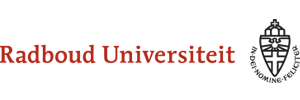American English Phonetics
Another American English Faculty Project
3.2 The stress in derived words
In the following sections we will have a look at two types of derived words that are frequently pronounced by Dutch learners with the stress on the wrong syllable. A derived word, for instance unbelievable, consists of a base, in this case believe, and one or more affixes, in this case un– and –able.
Derived Words
As a rule, in adjectives ending in /əbl/ (-able or –ible) the stress falls on the same syllable as in the base. (When the stress is more than two syllables removed from /əbl/, stress retraction may occur as in recognizable, from to recognize, which is either ˈrecognizable or recogˈnizable.):
| desire | desirable | /dɪˈzaɪə(rəbl)/ |
| exhaust | inexhaustible | /(ɪn)ɪgˈzɑːst(əbl)/ |
| process | processable | /ˈprɑːsɛs(əbl) |
Verbs ending in –ate frequently lose that ending before the affix is added, but the rule applies in the same way:
| ˈnavigate | ˈnavigable | /ˈnævɪgəbl/ (bevaarbaar) |
| eˈradicate | ineˈradicable | /ɪnɪˈrædɪkəbl/ (onuitroeibaar) |
| ˈpenetrate | imˈpenetrable | /ɪmˈpɛnətrəbl/ |
However, in the following cases the stress goes to the syllable before the one that is stressed in the base:
| adˈmire | ˈadmirable | /ˈædmrəbl/ |
| comˈpare | ˈcomparable | /ˈkɑːmprəbl/ |
| reˈpair | (ir)ˈreparable | /(ɪ)ˈrɛprəbl/ as in irreparable damage /(ɪ)rɪˈpɛrəbl/) as in Is the bike (ir)repairable? |
| reˈvoke | irˈrevocable | /(ɪ)ˈrɛvəkəbl/ |
| preˈfer | ˈpreferable | /ˈprɛfrəbl/ |
| reˈpute | ˈreputable | /ˈrɛpjutəbl/ |
Also note the following:
| ˈdemonstrate | deˈmonstrable | /dəˈmɑːnstrəbl/ |
| ˈexplicate | inexˈplicable | /ɪnəksplɪkəbl/ (onverklaarbaar) |
In a number of other words there is variation between speakers: some put the stress on the syllable before /əbl/, while others put it on the syllable before that one, irrespective of where the stress is in the base. An example is inextricable (onontwarbaar). Some people say /ɪnɛkˈstrɪkəbl/, others say /ɪnˈɛkstrɪkəbl/. Such variation also occurs in applicable (van toepassing), irrefutable (onweerlegbaar); also formidable and hospitable (gastvrij) belong here, although they cannot be said to have a base.
